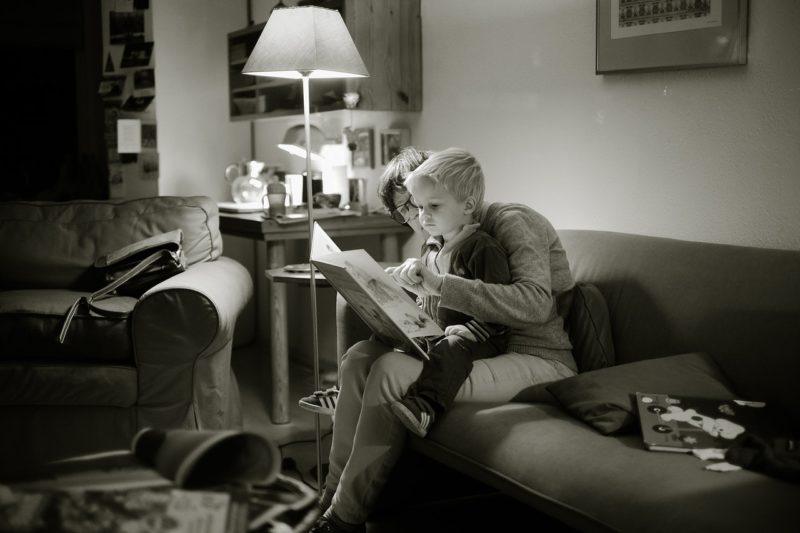Overcome stereotypes to nurture working-class boys’ love of reading

A new study published in Gender and Education suggests that gender perceptions, parental support, and limiting workplace expectations have a profound impact on working-class boys’ reading habits and abilities.
Dr Laura Scholes, an expert on boys and reading at Queensland University of Technology, led a study on working-class boys’ engagement with and enjoyment of reading.
The 15 boys who participated were attending year 5 and 6 (10-12 years old) at three primary schools in low socioeconomic communities in South East Queensland. These areas have a low proportion of students completing year 12 and high levels of unemployment.
The study suggests that while many working-class boys love reading, some can be discouraged by particular notions of masculinity, such as those that value physicality and strength while devaluing reading.
The five boys that indicated high-levels of enjoyment for books and the social aspects of reading were typically avid readers and exceeded year level reading requirements.
These boys expressed confidence in reading and a positive attitude to reading a range of genres.“I just like reading – comics, books, anything I can get my hands on. I was reading Dustin’s dog but it had to go back to the library today,” said Michael.*
The presence of a male peer who enjoys reading can broaden boys’ experiences of masculinity, supporting engagement and better reading outcomes, said Dr Scholes.
Four boys portrayed reading as uncool and nerdy. The boys who indicated low levels of enjoyment for books were all below year level reading requirements and two were receiving additional support for reading.
Jaydn explained, “I don’t read anything because some books are boring” and ”people that read books need to get a life I reckon.”
Wyatt justified not reading and explained “I don’t like reading storybooks because some of them are pretty boring and because it’s only about little kids’ stuff.”
Dr Scholes said that many students attribute boys’ popularity to athletic ability, “coolness” and toughness. Popularity in disadvantaged schools was also associated with anti-reading identities.Boys who stepped outside constructed stereotypes risked marginalisation.
Children’s reading outcomes were strongly related to home reading cultures. To Lucas, parental support and approval were important. He proclaimed that, “mum loves me reading, she just watches me read all the time.”
In contrast, Jaydn, who thought reading was for nerds and was a reluctant reader, did not refer to a supportive home reading routine and did not see members of his family reading.
Many of the boys connected with reading materials that are not traditionally sanctioned in schools, such as magazines. Schools emphasis’ on certain genres, such as literary fiction, can be limiting for boys who have developed such an affinity.. As such, Dr Scholes said it is important to support a broader view of what kinds of texts are valuable to encourage reading for pleasure.
To widen students’ experiences as readers, she said, teachers may also need to challenge current views of gender. Teachers are in ideal position to expand boys’ reading identities to include a repertoire that young males can aspire to and value.
Even though not all of the boys valued reading in itself, most of them had internalised an explicit link between reading and job trajectories with a belief that reading could be a determining factor in your life because “reading will help get a job”.
Boys, such as Jadyn, who were less avid readers were reluctant to speak of workplace possibilities. Many of the boys, however, wanted jobs traditionally perceived as “masculine” such as police officer, farmer or builder. Their understanding of the value of reading for these workplace trajectories was an enabling factor.
Mason, for example, talked about the anti-reading peer group cultures at school that included ‘bad’ behaviour and ‘fighting’. However, he reconciled his enjoyment for reading as it was related to his aspirational desires.
“I want to get a really good job, like my brother has, a bricklayer. He takes home around about $400 a week. And now he’s got a good job and he had a good education”, said Mason.
Mason, said Dr Scholes, had internalised a strong connection between reading and getting what he perceives to be a ‘really good job’. Although he did not read avidly at school, he was fostering his enjoyment of reading at home.
“Boys’ experiences as readers in disadvantaged locales are complicated,” said Dr Scholes. “But positive experiences of being a male reader at school and at home can support day-to-day reading, contributing to the ongoing development of reading skills, expertise and educational outcomes.”
*Pseudonyms have been used for study participants.
Sources:
Laura Scholes, (2018) ‘Working-class boys’ relationships with reading: Contextual systems that support working class boys’ engagement with, and enjoyment of, reading’. Gender and Education. https://www.tandfonline.com/doi/full/10.1080/09540253.2018.1533921

 China
China